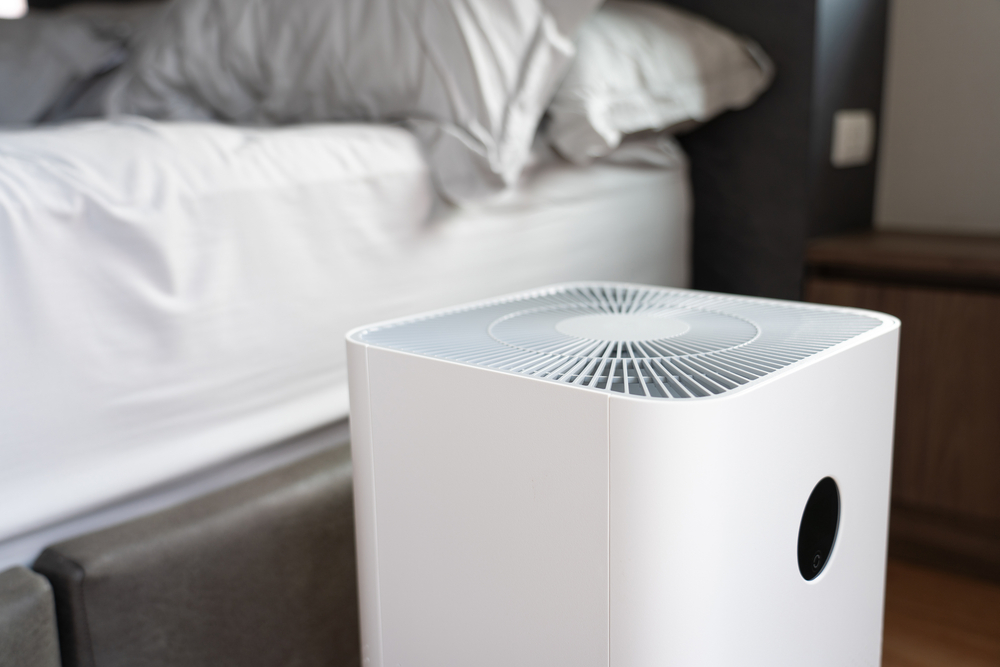Can you build immunity to dog allergies

Is It Possible to Build Up an Immunity to Dog Allergies? Facts & FAQ
Approximately 10 to 20 percent1 of humans worldwide suffer from dog or cat allergies. For animal lovers, an allergy to your favorite pet can be devastating. Allergies can be quite debilitating, but with the advancement of modern medicine, more and more can be done to combat those pesky allergies.
If you are a dog lover who suffers from a dog allergy2, you may wonder if there is anything you can do to build immunity to the allergy to make life with your dog that much more comfortable. The good news is that some things can be done to help you build immunity. There are also some other suggestions to help relieve the allergies. Lets take a look.

What Causes Dog Allergies?
Allergies are the reaction that takes place when the bodys immune system reacts to a form of allergen. With dog allergies, the reaction is typically due to certain proteins found mostly in oil secretions from a dogs skin and, more commonly, in the saliva.
It is a common misconception that the allergy is to the dogs hair. Saliva, skin flakes, or dander cause the allergy. The proteins from these allergens are then carried into the environment and lead to an allergic reaction. Allergies are not a one-size-fits-all kind of condition either; everyone has different levels of severity and can exhibit different symptoms.

How Does the Allergy Develop?
Allergies can develop at any age. The immune system will create antibodies naturally programmed to recognize and respond to a specific allergen. Even if you have been around an allergen without issues, an allergy can still potentially develop.
While you cannot inherit a specific allergen, the likelihood of allergies is much greater if allergies run in the family. Occasionally, severe allergies can develop into allergic asthma, triggered by exposure to allergens.
Symptoms of Pet Allergies
- Sneezing
- Runny nose
- Itchy, red, or watery eyes
- Nasal congestion
- Itchiness in the nose and roof of the mouth
- Postnasal drip
- Cough
- Trouble sleeping
- Facial pressure or pain
- Swelling and blue-colored skin under the eyes
Symptoms of Allergic Asthma
- Difficulty breathing
- Chest tightness
- Chest pain
- Shortness of breath, coughing or wheezing
- A whistling or wheezing sound when exhaling
- Trouble sleeping caused by shortness of breath, coughing, or wheezing

Is There a Cure for Allergies?
Unfortunately, there is no cure for allergies. Symptoms of allergies can be controlled through a variety of measures, including medication, avoiding allergens, and even immunotherapy in some cases. Allergies can be a bit unpredictable at times. Some people even outgrow them as they age, while others experience worsening symptoms. The best thing to do for your allergies is to speak with your allergy specialist and come up with a game plan.
Can You Build Up an Immunity to Allergies?
You can work to build immunity to dog allergies through immunotherapy. For allergies, this means getting allergy shots to help build up this immunity to the allergens by increasing the dose triggers over time.
This is a common go-to for pet lovers desperate to keep their pets and continue to live among them. Immunotherapy is not a quick solution and is more of a long-term solution that helps build a tolerance to the allergen(s) over time.
Aside from shots, there are allergy drops available for those who would prefer to steer clear of needles. The drops are not nearly as effective as the shots in the long run but are beneficial to those who would refuse immunotherapy due to the shots themselves.


How to Reduce Dog Allergens
All hope is not lost if you are a dog owner who suffers from a dreaded dog allergy. Here are some additional tips on how you can help reduce allergens in the home.
1. Keep Clean and Tidy
If you suffer from dog allergies but still share a home with dogs, you must keep up with regular cleaning to reduce your exposure to the allergen. Make sure you thoroughly vacuum carpets and furniture at least once a day and keep surfaces wiped down.
2. Keep Up With Laundry
Make sure you wash laundry regularly, especially any bedding that your dog lays on. The dander can get on clothes and is all over bedding, making them a potential trigger. Keeping up with regular washing will help reduce the amount of dander on the fabrics.
3. Replace Carpets with Hard Flooring
While this may be an expensive option that can take quite a bit of hard work if you dont hire out the job, replacing the carpets in the home with hard flooring is a good idea. Allergens tend to get trapped in the fabrics of carpet and can cause allergy sufferers to suffer that much more. Hard surfaces dont trap the allergens and are much easier to clean. If thats not a possibility, try utilizing a carpet cleaner and using it regularly.
4. Ditch the Upholstered Furniture
Just like carpets, upholstered furniture also hangs on to dander and allergens. It can be much more beneficial to get some leather or faux leather furniture that is easy to clean off and wont trap those triggers. Another perk? You wont have to vacuum the furniture nearly as much.
5. Use HEPA Filters and Air Purifiers
There are some pretty effective air filters and air purifying machines on the market today. Make sure you use high-quality HEPA filters in the ducts to help filter those particles and keep them from being circulated throughout the house. You can also buy an air purifier for specific rooms to help keep the air clean and low in allergens.

6. Set Boundaries
You may have to set certain boundaries within the home to ensure your dog is not frequenting areas of the allergy sufferer. It is best to keep the dog(s) out of the bedroom of anyone that suffers from allergies. If thats not going to be feasible, at least set furniture boundaries to keep them from the areas the sufferer frequently sits or sleeps.

Conclusion
Dogs are an absolute joy to have around, but for those that suffer from dog allergies, its a bit of a double-edged sword. You can build up an immunity to dog allergies with the use of immunotherapy, which is usually in the form of injections or drops. There are some other steps you can take in terms of treating the allergy symptoms and working to reduce exposure in the home. Of course, its best to always consult with your healthcare practitioner for the best information on how to handle your allergy.
Featured Image Credit: Albina Gavrilovic, Shutterstock
Natural Ways to Improve Your Dogs Immune System
By Paula Fitzsimmons
A malfunctioning immune system in dogs can open the door to a host of diseases, such as infection, diabetes, osteoarthritis, and cancer. Keeping your dogs immune system balanced can help reduce these risks, and contribute to overall health and well-being, according to veterinary experts.
The immune system acts like a nonstop housekeeper, describes Dr. Donna Raditic, an American College of Veterinary Nutrition (ACVN) diplomate who does consulting on nutrition and integrative veterinary medicine in Athens, Georgia. It identifies potentially harmful pathogens like bacteria, viruses, fungi, and parasites, then works to eliminate them before they can do harm. And a dogs immune system monitors cells to ensure theyre working properly. When other cells are aging or functioning abnormallysuch as a cancer cell reproducing too rapidlythe immune system attempts to step in and maintain proper physiological function and balance, Raditic explains.
When this system is compromised, your dog may become increasingly vulnerable to illness. An immune system thats off-kilter for an extended period can lead to chronic inflammation, which, in turn, can forge a path for disease. Diabetes, osteoarthritis, some liver and heart conditions, asthma, and cancer are just some of the diseases connected to inflammation, says Dr. Ken Tudor, a holistic veterinarian and founder of The Well Dog Place in Claremont, California.
Fortunately, there are some simple, natural steps you can take to strengthen your dogs immune system.
Encourage Your Dogs Innate Love for Play
Keeping your dog fit is one of the best ways to boost immune health and promote overall well-being, Tudor says. Storing excess fat weakens the immune system, he explains. Fat is the bodys largest endocrine gland, responsible for secreting more than 40 different inflammation-promoting hormones, he continues. Even the smallest amount of excess fat can increase the amount of these hormones in the body. Exercise burns fat, which can help counter inflammation, and thus the occurrence of disease.
Dogs are naturally active, so adequate exercise and play are important to their health. But exercise doesnt have to be a chore. In fact, it should be fun, says Dr. Laurie Coger, a holistic veterinarian and owner of The Healthy Dog Workshop. Activities she suggests trying with your canine companion include retrieving, playing, doing scent work, and learning tricks.
Ideally, any exercise program should be approved by your vet and based on your dogs age, breed, and general health. Generally speaking, if your dog is not doing a 15-minute mile, hes not burning enough calories, Tudor says.
Feed Your Dog the Right Foods
Your dogs diet is a cornerstone of good immune health. The gut contains about 70 percent of your immune system explains Dr. Susan Wynn, an ACVN diplomate who practices at BluePearl Veterinary Partners hospital in Sandy Springs, Georgia. The gut also contains your microbiomethe collection of hundreds of species of bacteriaand the bacterial balance in the microbiome is heavily influenced by the diet.
Coger says dogs are designed to eat a moist, meat-based diet, yet commercial dry foods are comprised of at least 40 percent starch. The problem with starches, she explains, is that they promote inflammation. In Cogers experience, vegetable and legume starches, such as potatoes, sweet potatoes, and lentils, are not as acidifying and inflammatory as starchy grains. Coger recommends a grain-free, starch-free (if possible) diet that also includes some fresh meat and vegetables.
Wynn adds that a diet containing a reasonable amount of good fiber and live bacteria from fresh foods is important to maintaining a healthy microbiome. As an example, many raw diets that contain only meat and bone do not support the best microbiome for dogs, she says.
Nutrition is not a one-size-fits-all solution. The best way to ensure your dog is eating an optimal immune-strengthening diet is to ask your veterinarian, Raditic recommends. We have nutrition guidelines provided by research, but these apply to what we call the generic dog and cat, not the individual, she says. Your veterinarian will understand these guidelines, but then must evaluate the individual patient and determine if these guidelines should be modified.
Consider Certain Supplements For Your Dog
To increase the effectiveness of the immune system, you may consider supplementing your dogs diet with certain nutrients. But Coger advises against buying a supplement for every possible condition. Giving your dog many different products makes it easy to overdo some ingredients, and conflicting ingredients can interfere with absorption, she warns.
Supplements that Coger does recommend are probiotics, which are coveted because they introduce beneficial microorganisms into the digestive tract. As Tudor explains, Healthy gut flora promotes improved gut immunity, which has shown to promote improved internal immunity.
If youre considering supplementing your dogs diet with probiotics, keep in mind that the canine microbiome differs from ours. So giving them the same supplement that you take, or treating them to a serving of yogurt, is probably not going to benefit them. A better alternative is to consult with your vet about dosing and appropriate probiotic species and strains.
Another supplement to consider is fish oil, which contains inflammation-fighting omega-3 fatty acids. Tudor says fatty acids are essential because they temper the inflammatory response. Getting adequate amounts via diet can be tricky, however, so he recommends giving your dog a fish oil supplement.
Tudor also recommends curcumin, the active ingredient present in turmeric. Aside from containing anti-cancer properties, curcumin is also an anti-inflammatory and a pain reliever, he says.
When considering any supplement, understand that not all brands are created equally, Raditic says. There have been studies where they looked at probiotics, for instance, and some did not contain what was on the label, some contained inactive bugs or wrong names, she says. Its buyer beware.
Coger advises buying from well-known companies that use high-quality ingredients and whose products are tested for purity. She says the presence of a National Animal Supplement Council (NASC) seal on a label is a good indicator that the product youre buying is genuine.
Harness the Healing Power of Dog Massage
Touch, massage, and similar methods can be beneficial for dogs because they promote relaxation and healing, which, in turn, affect overall health, Coger says. While there is limited veterinary research on the effects of massage on animals, human-based studies have shown that massage can reduce levels of stress hormones in the body. In addition, a research review published in 2014 stated that moderate pressure massage contributes to enhanced immune function (increased natural killer cells and natural killer cell activity) among many other positive effects. Although we cant be sure, it seems reasonable to think that dogs could experience similar benefits from massage.








